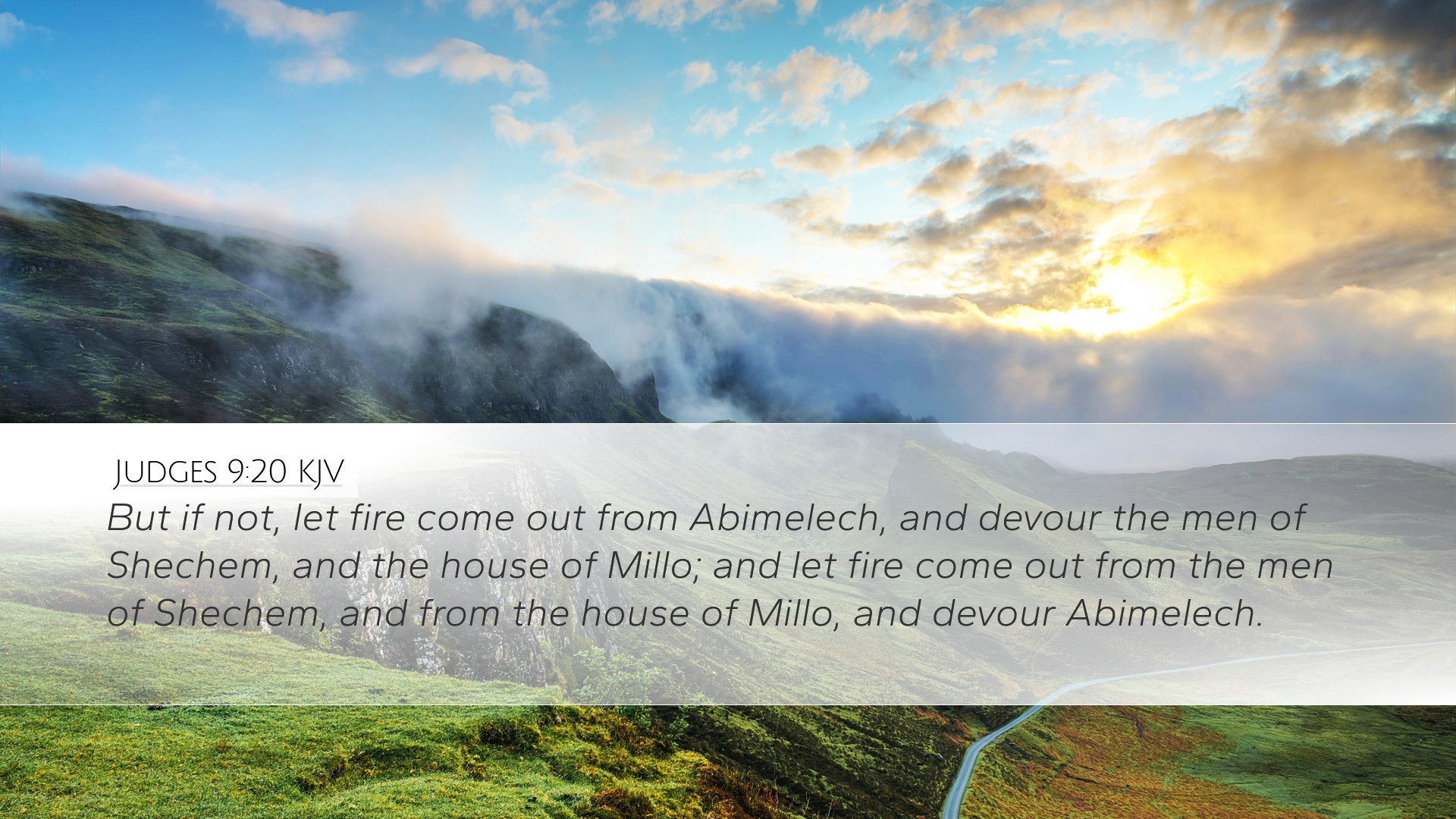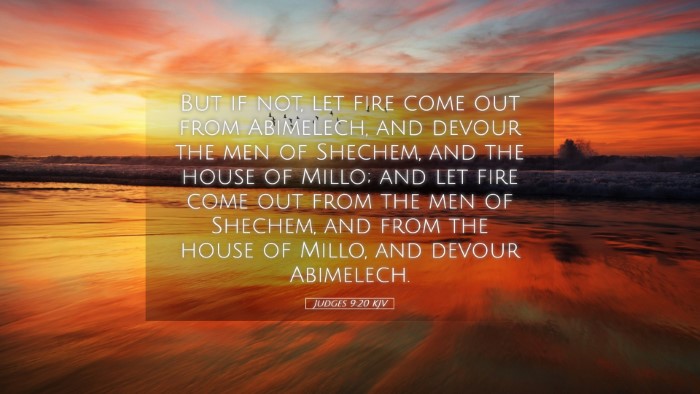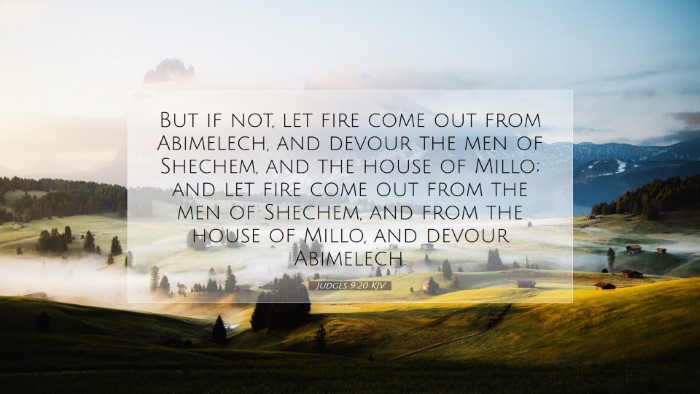Commentary on Judges 9:20
Judges 9:20 states, "But if not, let fire come out from Abimelech, and devour the men of Shechem, and the house of Millo; and let fire come out from the men of Shechem, and from the house of Millo, and devour Abimelech." This verse appears in the context of a complex narrative enveloping themes of leadership, betrayal, and divine retribution. For pastors, students, theologians, and Bible scholars, the following analysis draws on insights from public domain commentaries, elucidating the deep ramifications of this verse within the broader tapestry of the biblical text.
Contextual Setting
The backdrop of Judges 9 portrays Abimelech, the son of Gideon, as a figure who asserts his claim to authority through manipulation and violence. After the death of Gideon, the Israelites quite unpredictably turn to Abimelech, a man of questionable lineage, triggering a series of tragic events. The context of Judges 9:20 emerges significantly as a response to a curse offered by Jotham, the youngest son of Gideon, who escapes the massacre Abimelech perpetrates against his brothers.
Analysis of the Verse
Fire Symbolism
Matthew Henry's Commentary highlights that fire serves as a potent symbol in biblical literature, often representing divine judgment and destruction. In this instance, the invocation of fire to consume both Abimelech and the men of Shechem illustrates the destructive nature of their actions. This dual reference to fire not only signifies the imminent danger but also encapsulates the repercussions of their covenantal disloyalty.
Reciprocal Destruction
As noted by Albert Barnes, the curse Jotham pronounces epitomizes a cycle of reciprocal hostility. The intention behind invoking mutual destruction is emblematic of the breakdown in relationships due to betrayal and ambition. It reflects a profound theological truth that actions have consequences, especially when they breach the moral commandments of mutual respect and loyalty among God's chosen people.
Divine Judgment
Adam Clarke expounds on the implications of Jotham’s curse, suggesting that it transcends mere human conflict and taps into the broader theme of divine judgment. The textual narrative suggests that such conflicts do not escape the notice of God, who ultimately ensures that ungodliness does not go unpunished. It reinforces an essential biblical principle: that those who conspire in treachery will find themselves ensnared in the very trap they set for others.
Theological Implications
Judges 9:20 provides a pivotal moment for reflection on leadership, responsibility, and divine justice. The use of fire as a curse against enemies exemplifies the destructive nature of sin that consumes not only the instigators but also those who collude in evil. As followers of Christ, pastors and theologians are invited to explore the depth of these biblical themes.
The Weight of Leadership
Every leader bears the weight of their influence. Pastors are reminded of the grave responsibility that accompanies authority; they must cultivate integrity and righteousness, lest they lead themselves and others to ruin. The tragic end of Abimelech serves as a cautionary tale on the dangers of usurping power without divine sanction or moral foundation.
Covenantal Faithfulness
Furthermore, the collective punishment of Shechem highlights the significance of communal faithfulness in the community of faith. Covenants within biblical traditions necessitate a deep relational commitment, enforcing the idea that individual sins can ripple through communities. Jotham’s curse serves as a reminder for congregations to hold each other accountable and to seek restoration in relationships that may be strained by betrayal.
Hope Amidst Judgment
While the darkness of this narrative is palpable, there is a thread of hope woven through the fabric of Israel's history. It is critical for scholars and theologians to assert that, despite the moral failures, God's redemptive plan encompasses all circumstances. The ensuing destruction paves the way for an eventual restoration that unfolds in the overarching biblical narrative through Jesus Christ, who embodies the hope of reconciliation.
Conclusion
In summation, Judges 9:20 is far more than a historical account; it is a profound commentary on the nature of sin, leadership, and divine retribution. The insights gleaned from respected commentators like Matthew Henry, Albert Barnes, and Adam Clarke enrich our understanding of this complex verse, illuminating the spiritual and moral lessons embedded within. For pastors, students, and scholars alike, embracing these insights fosters a deeper engagement with the text, inviting reflection and transformation in their spiritual journeys.


